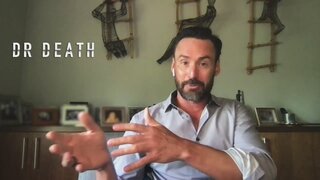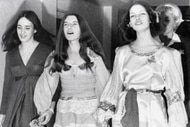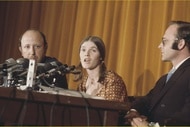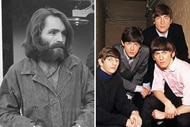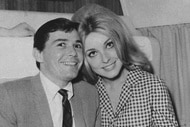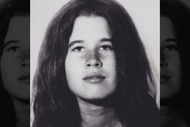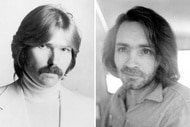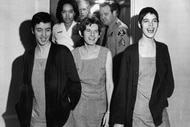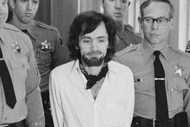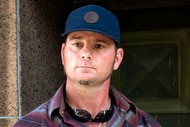Who Are Robert Henderson And Randall Kirby, The Surgeons Who Tried To Stop 'Dr. Death'?
Texas surgeons Dr. Randall Kirby and Dr. Robert Henderson became convinced that fellow physician Christopher Duntsch was so incompetent it was criminal.
Vascular surgeon Randall Kirby first met Christopher Duntsch in the doctor's lounge at the Baylor-Plano Medical Center.
"He explained to me that he was the best spine surgeon in Dallas," Dr. Kirby said in a 2019 episode of 'License To Kill.' "He doesn't have the gravitas or body of work to be able to make that statement."
But if Duntsch came off as arrogant to Kirby early on, their next interaction would prove much worse. On Jan. 11, 2012, Dr. Kirby was called in to assist the cocky young spinal surgeon in what should have been a routine procedure. Right away, Kirby noticed that Duntsch's technique was flawed: instead of using a scalpel to delicately remove a damaged disc, he went in with a grabbing instrument. In the new Peacock series “Dr. Death,” Dr. Kirby (played by Christian Slater) is horrified and attempts to correct Duntsch (played by Joshua Jackson). But before he can stop him, Kirby is called away to assist in a different surgery.
That patient, Barry Morguloff, reports ProPublica, was left with bone fragments in his spinal canal and experienced constant pain and was temporarily confined to a wheelchair following the procedure.
After another botched surgery at Baylor-Plano, in which patient Kellie Martin bled to death, the hospital allowed Duntsch to quietly resign. He wasn't reported to the Texas Medical Board and he soon moved on to the Dallas Medical Center. Once there, it didn’t take long for his deadly surgical practices to come to the attention of Dr. Robert Henderson, a well-respected spinal surgeon who had been practicing for nearly two decades.
"Dr. Henderson is a fantastic spinal surgeon," Kirby told License to Kill. "He's a Dallas legend."
Henderson was called in to do a salvage surgery on 71-year-old Mary Efurd, who was suffering from extreme pain following the operation she’d had the day before. The surgeon who’d performed that operation was Christopher Duntsch.
When Henderson looked at Efurd's post-operative X-rays and later opened her up for surgery, he was astonished by what he found: misplaced screws, a severed nerve root, and several holes drilled into her spine. “It was as if he knew everything to do,” Henderson said of Duntsch to ProPublica, “and then he’d done virtually everything wrong.”
Drs. Henderson and Kirby, working in the same medical orbit, eventually realized they were both aware of Duntsch's catastrophic surgical complications. In the Dr. Death television adaptation, as in real life, they felt his incompetence verged on something far more sinister. Was it possible that Duntsch wasn't just a bad surgeon, but a violent man intent on hurting people?
"He had no remorse about bad results," Kirby told License to Kill. "He kept operating after every catastrophic complication. ... I just knew he had to be stopped."
Even though Duntsch's poor surgical record was well known in the medical community, Kirby and Henderson found themselves hamstrung by a complicated process to revoke a physician's medical license. Adding to those complications is the fact that in Texas, any "non-economic" damages won in a malpractice suit are capped at $250,000. These include non-quantifiable expenses like quality of life, the emotional toll of the loss of a loved one, or the ability to participate in activities that once brought a person joy. Filing a malpractice claim is already a daunting and overwhelming process, and the cap on “non-economic” damages presented affected patients with another constraint in seeking recourse.
Eventually, after repeated letters, calls, and acts of whistleblowing, Henderson and Kirby attracted the attention of the Dallas District Attorney's office who agreed to prosecute Duntsch on charges of assault and harm to an elderly person, specifically Mary Efurd, a 71-year-old patient who suffered a botched back surgery. As the series depicts, the latter charge was important because it carried the widest breadth of sentencing options.
A key piece of prosecution evidence wound up being a video Henderson had recorded of his attempt to repair Efurd's original operation. On the stand he carefully explained the many defects and errors Duntsch had made.
"I felt he was a serial killer and serial maimer. I just did what I thought was right," Henderson said later.
In 2017, Christopher Duntsch was sentenced to life in prison. He will be eligible for parole in 2045.
Both Dr. Henderson and Dr. Kirby are still practicing physicians in the Dallas area.
"Dr. Death" is available to stream on Peacock now.
And if you want to dive even deeper into the story, you can also watch the new docuseries "Dr. Death: The Undoctored Story" on Peacock, which features interviews with numerous people intimately involved in the case.


